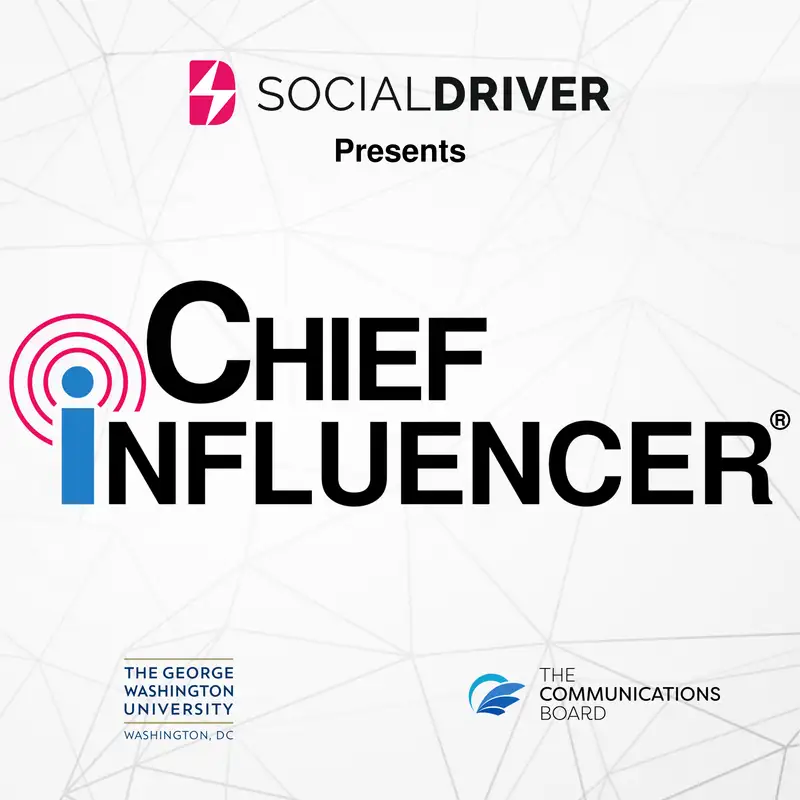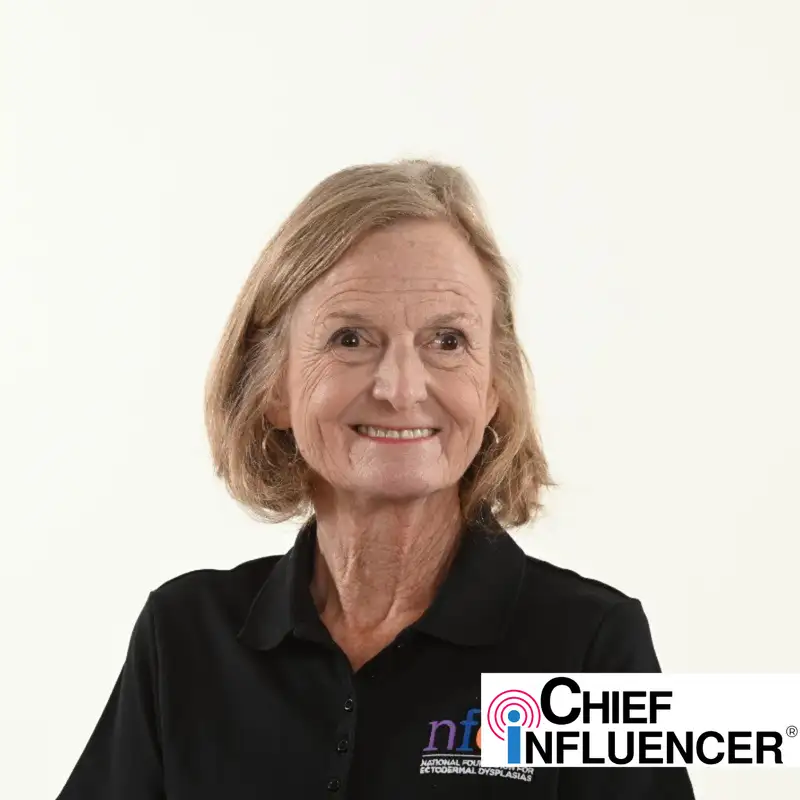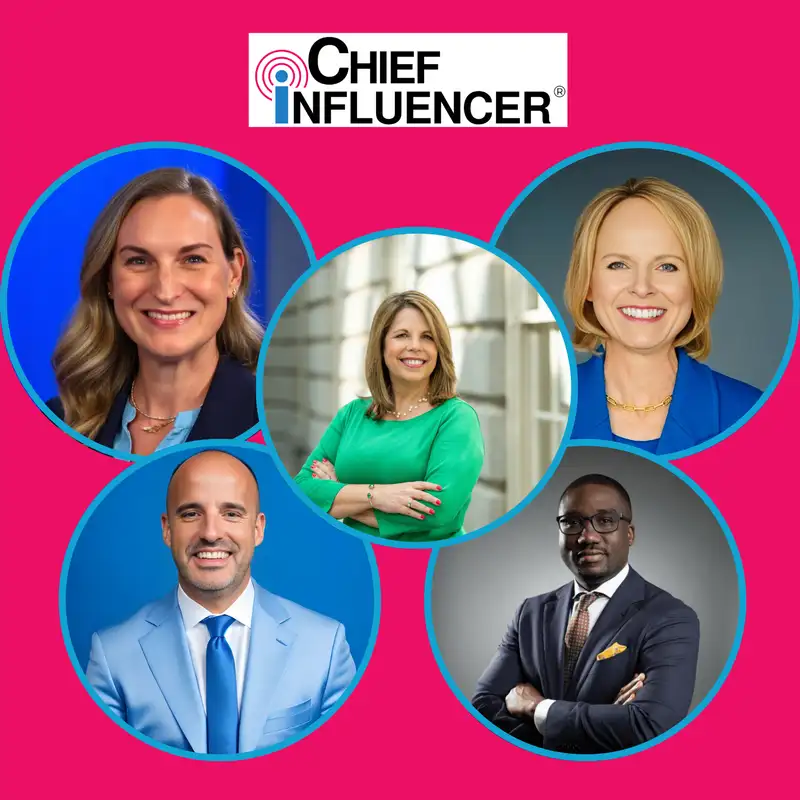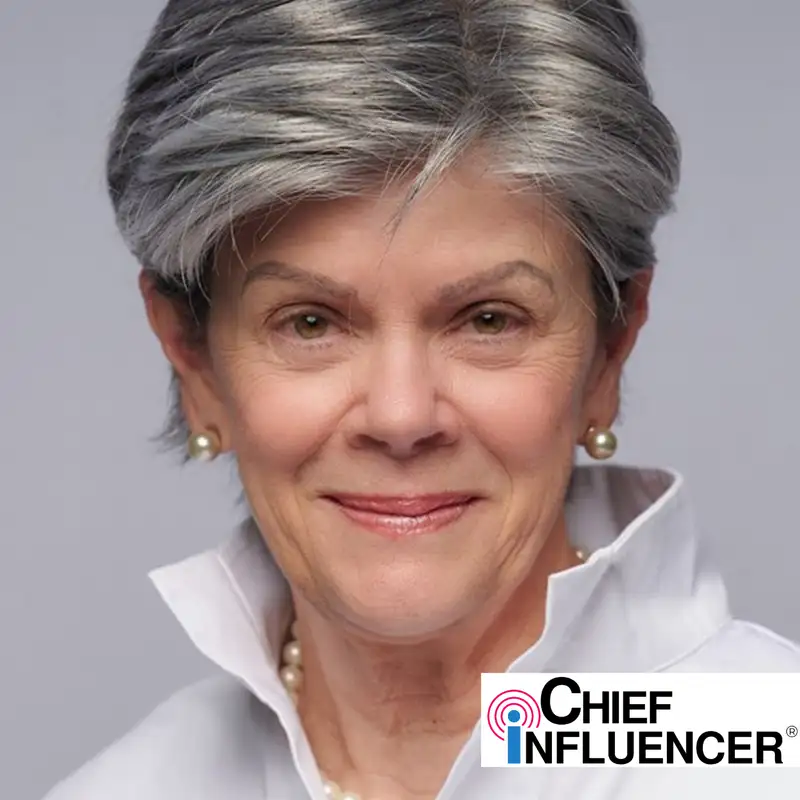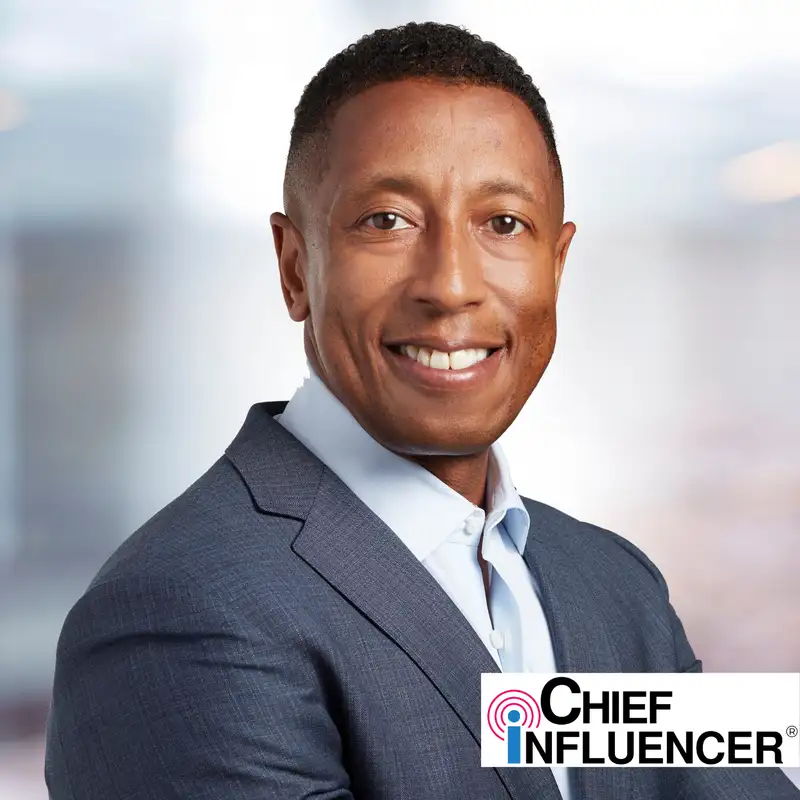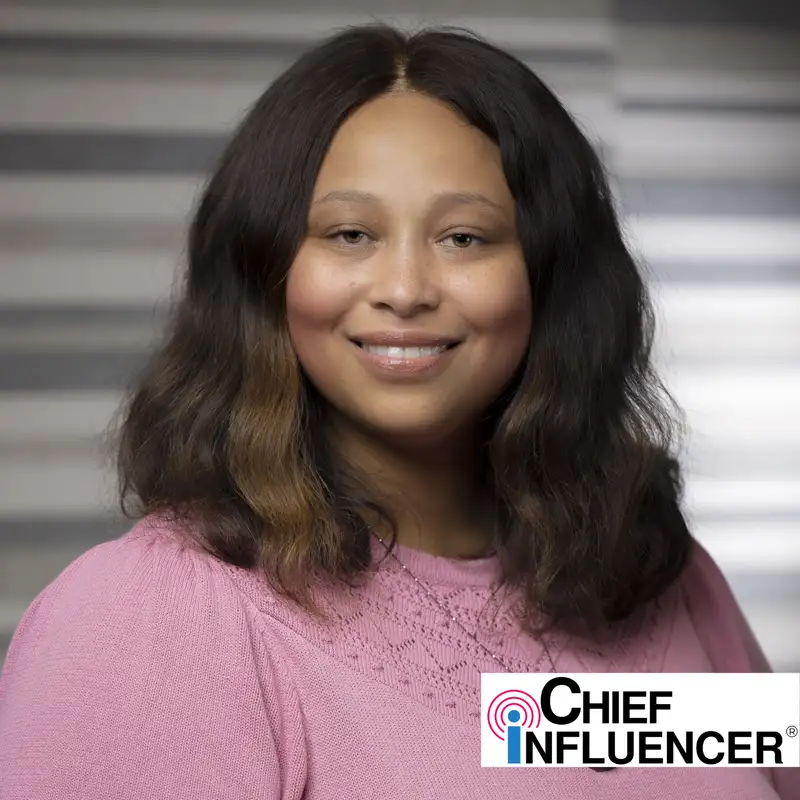Washington is the epicenter of influence — in the U.S. and around the world.
Chief Influencer® shines a spotlight on the leaders who know how to break through the noise in today’s fragmented communications landscape. In partnership with The George Washington University College of Professional Studies and The Communications Board, Social Driver created Chief Influencer® to celebrate these changemakers and explore how they lead, inspire, and influence others.
In candid conversations with changemakers across sectors, host Anthony Shop explores what it takes to lead effectively, communicate with impact, and earn the title of Chief Influencer®.
All Episodes
Chief Influencer® shines a spotlight on the leaders who know how to break through the noise in today’s fragmented communications landscape. In partnership with The George Washington University College of Professional Studies and The Communications Board, Social Driver created Chief Influencer® to celebrate these changemakers and explore how they lead, inspire, and influence others.
In candid conversations with changemakers across sectors, host Anthony Shop explores what it takes to lead effectively, communicate with impact, and earn the title of Chief Influencer®.
